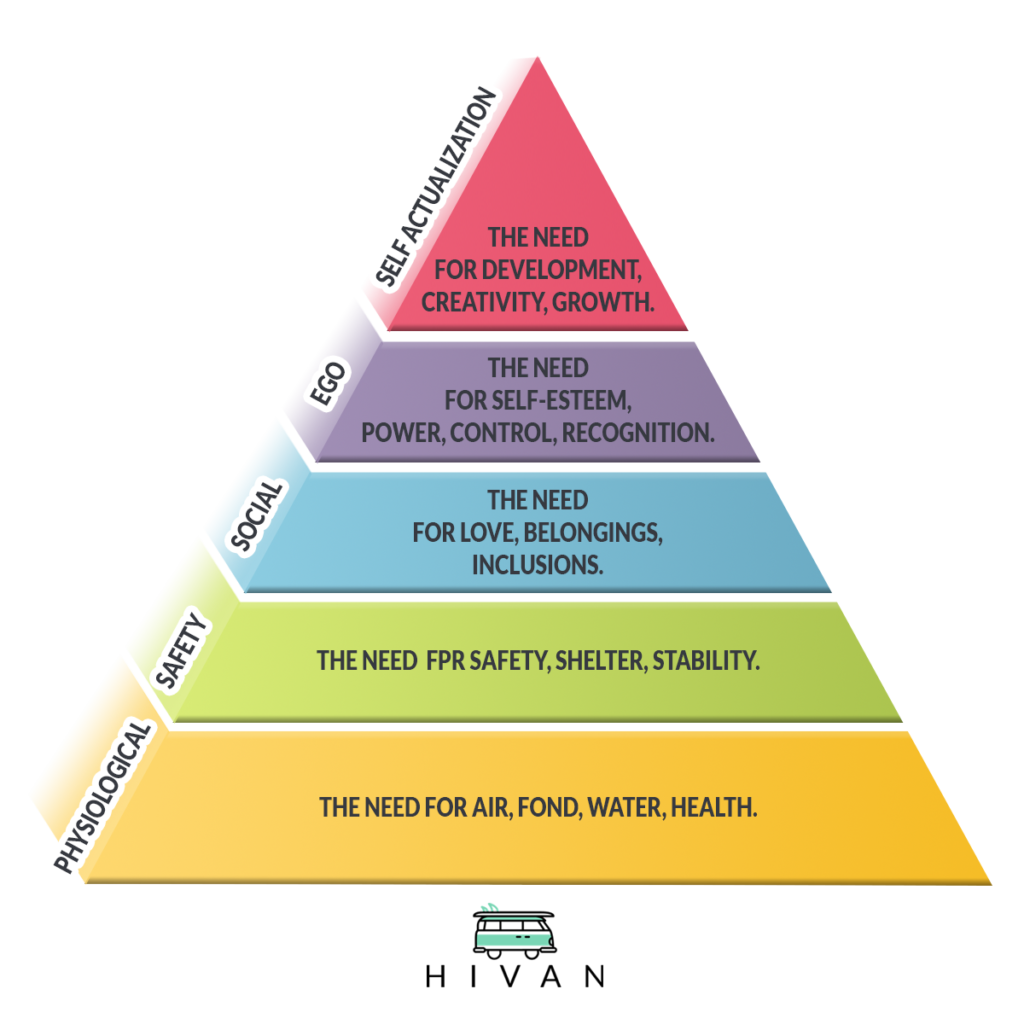Hi-van is supported by its audience. When you purchase using our links, we may earn an affiliate commission (no added cost to you). Learn more
Digital nomads are individuals that travel around the world while working remotely. Their online positions give them the freedom to live almost anywhere, opening up endless travel opportunities. But does this lifestyle result in a higher level of happiness and personal satisfaction?

Digital nomads often report a comparatively high level of happiness. The freedom to travel and work from almost any location allows digital nomads to form new relationships and experience diverse cultures. However, this lifestyle can also pose some risks to a person’s mental health.
In this article, we’ll explore five things you should know about the happiness of digital nomads. That way, you can better understand this lifestyle and decide if it might be suitable for you.
Things To Know About the Happiness of Digital Nomads
Taking up a remote position and hopping from city to city could be a great way to see the world and meet new people. However, this lifestyle isn’t without potential disadvantages and downsides.
Digital nomads often spend extended periods away from close friends and family members. They may also begin to suffer from depression due to a lack of stability or security in their lives.
But, of course, many digital nomads report feeling far happier since their transition into a remote position. Understanding the average happiness of digital nomads can be challenging, but it’s essential to remember the following:
1. Happiness Varies From Person to Person
The idiom “one man’s trash is another man’s treasure” perfectly describes how human happiness functions. Something that could bring joy to one person’s life could terrify or enrage someone else.
When determining how happy digital nomads might be, it’s vital to remember everyone has specific likes and dislikes that can influence their sense of happiness. For example, a person who despises air travel may grow to hate the digital nomad lifestyle.
Alternatively, an individual that adores travel might wholly embrace and enjoy becoming a digital nomad.
2. Basic Needs Must Be Met First

Famed psychologist Abraham Maslow posited that human beings have particular natural needs and that by fulfilling those needs, a person could find happiness and self-satisfaction. He layered these requirements into five levels, called Maslow’s hierarchy of needs.
The foundational needs include sleep, food, and clean water. Naturally, these are all things that we can’t live without. But the secondary layer is stability and security. Now, this portion is significant.
Digital nomads might not have quite as much stability in their lives as those that reside in one place. Their surroundings may constantly change, forcing them to adapt to new situations at a rapid pace.
Additionally, digital nomads can wind up trapped in foreign locations due to war or disease. For example, in 2020, many US citizens were stranded abroad due to the sudden shutdowns of major international airports around the globe.
These incidents can significantly impact a digital nomad’s basic needs, thus lowering their sense of personal satisfaction and happiness. As such, individuals engaged in this lifestyle must take steps to ensure that they feel as secure and stable as they possibly can.
3. There Are Three Pillars of Happiness
Though every person has unique likes and dislikes, some things generally make everyone a little happier. In fact, psychologists have pinpointed three significant factors that seem to contribute to a person’s happiness:
- Freedom of choice
- Purpose and self-fulfillment
- Depth of experience
Unlike traditional workers, digital nomads enjoy an immense amount of autonomy. However, it’s up to each individual to define their own sense of purpose. Depth of experience is also variable.
Like any other individual, digital nomads can suffer from unhappiness if their travels aren’t fulfilling.
New travelers may also initially experience a decrease in personal happiness due to a lack of experience. Fortunately, this aspect improves with time and continued exploration.
4. Digital Nomads Benefit From Some Stability
Hopping from city to city and roaming throughout Europe, Asia, or Africa could make for unforgettable stories and jaw-dropping sights. But constantly moving from location to location can be draining on your mind and body.
Generally, remote workers that travel the globe schedule a little downtime between all their exotic travels. This allows them to reset, recuperate, and enjoy a little stability.
Some digital nomads spend several weeks with family or friends. Others maintain a permanent home or apartment. These options can reintroduce travelers to familiar faces and environments, helping them feel more comfortable and secure.
5. Experiences Can Be Worth More Than Belongings
Chasing material possessions might generate some happiness in the short term, but it has been linked to long-term unhappiness. Fortunately, most digital nomads don’t acquire many belongings when traveling the world.
However, some individuals focus on saving money while traveling. After all, if you’re not paying rent, you can choose to live in low-cost hostels or inns to reduce your monthly lodging costs. The same is generally true of food and general care items like shampoo.
But remote workers that focus solely on saving can miss out on once-in-a-lifetime experiences. And upon returning to their home country, they might discover that they hardly saw any of the beautiful places they went out to explore due to focusing on work, productivity, and saving money.
Investing in experiences abroad can be far more rewarding than investing in material goods. While it’s also great to maintain a savings account and manage your money wisely, it’s essential to treat yourself to some local entertainment, cuisine, and culture.
Digital nomads that put aside the time to enjoy themselves are more likely to experience consistently high happiness levels.
Find this content useful 🙂 ?
Subscribe to our Newsletter and get a free Solar Electric Diagram + shopping list.
Finding Happiness as a Digital Nomad
Feeling tied down to a specific area or property can fill you with a sense of constant frustration. Fortunately, traveling the world while working remotely could enrich your life in ways you’ve never even imagined.
Of course, living the digital nomad lifestyle can also be damaging to a person’s mental health. If a remote worker traveling the globe doesn’t maintain social relationships or pursue specific goals, they can quickly feel unhappy.
Consequently, finding happiness as a digital nomad means:
- Understanding what makes you feel happy
- Satisfying your basic needs as often as possible
- Investing time in developing meaningful relationships
- Maintaining a permanent address in a comfortable location
- Choosing positive experiences over material pleasures
By following these unwritten rules, digital nomads can reduce their stress and embrace a happier lifestyle. Remember, recognizing unhappy feelings is the first step toward making a wise decision about changing them.
It’s not uncommon for digital nomads to occasionally feel homesick or uncertain about their lifestyle. But the key is building and maintaining a loving social support system.
Final Thoughts
Living as a digital nomad can be a freeing experience. However, determining the average happiness of an individual living this lifestyle can be challenging. After all, feelings of happiness vary from person to person.
Additionally, any person whose basic needs aren’t being met can suffer from unhappiness. Digital nomads may find that they’re happiest when forming and nurturing loving relationships. Investing in experiences and maintaining a safe, stable residence can also boost feelings of happiness.

